Publications
Articles, publications, books, tools and multimedia features from the U.S. Institute of Peace provide the latest news, analysis, research findings, practitioner guides and reports, all related to the conflict zones and issues that are at the center of the Institute’s work to prevent and reduce violent conflict.
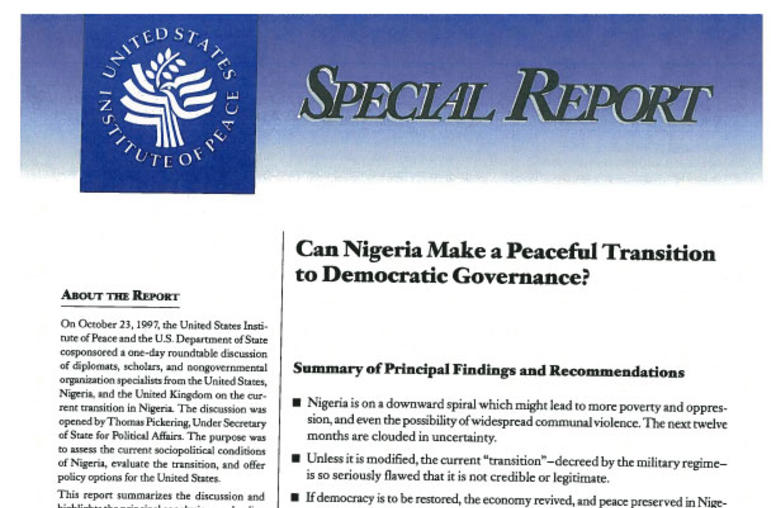
Can Nigeria Make a Peaceful Transition to Democratic Governance?
On October 23, 1997, the United States Institute of Peace and the U.S. Department of State cosponsored a one-day roundtable discussion of diplomats, scholars, and nongovernmental organization specialists from the United States, Nigeria, and the United Kingdom on the current transition in Nigeria. The purpose was to assess the current sociopolitical conditions of Nigeria, evaluate the transition, and offer policy options for the United States.
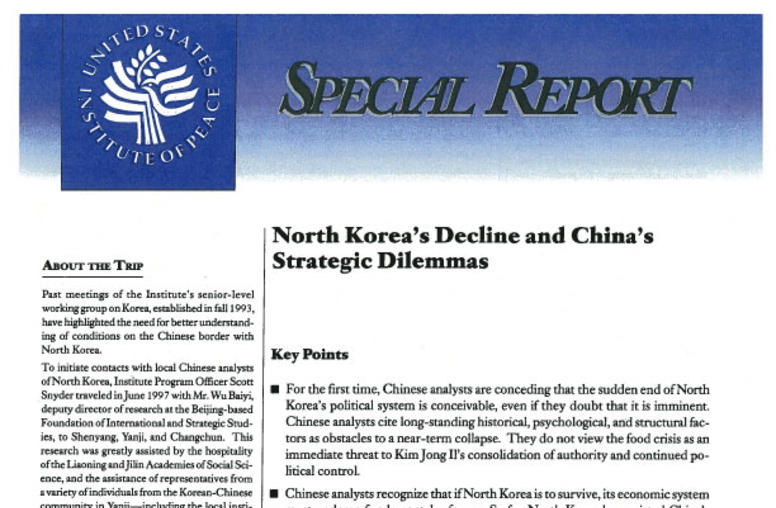
North Korea's Decline and China's Strategic Dilemmas
For the first time, Chinese analysts are conceding that the sudden end of North Korea's political system is conceivable, even if they doubt that it is imminent. Chinese analysts cite long-standing historical, psychological, and structural factors as obstacles to a near-term collapse. Chinese analysts recognize that if North Korea is to survive, its economic system must undergo fundamental reforms.
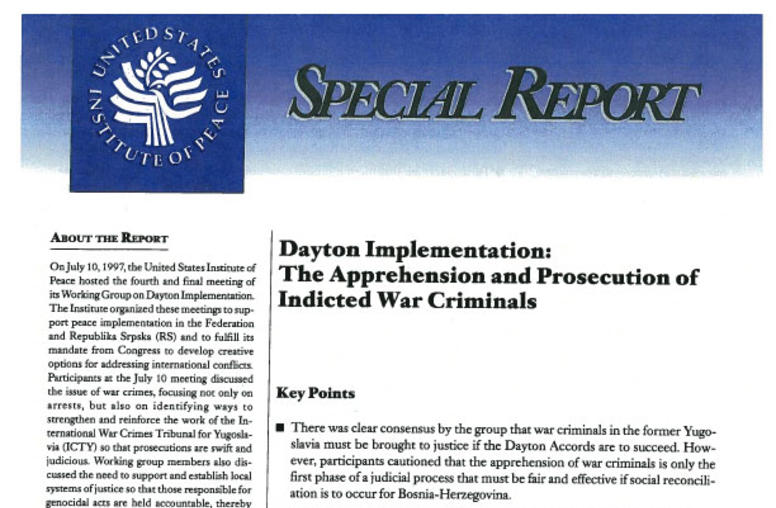
Dayton Implementation: The Apprehension and Prosecution of Indicted War Criminals
On July 10, 1997, the United States Institute of Peace hosted the fourth and final meeting of its Working Group on Dayton Implementation. The Institute organized these meetings to support peace implementation in the Federation and Republika Srpska (RS). Participants at the July 10 meeting discussed the issue of war crimes, focusing not only on arrests, but also on identifying ways to strengthen and reinforce the work of the International War Crimes Tribunal for Yugoslavia (ICTY) so that pro...
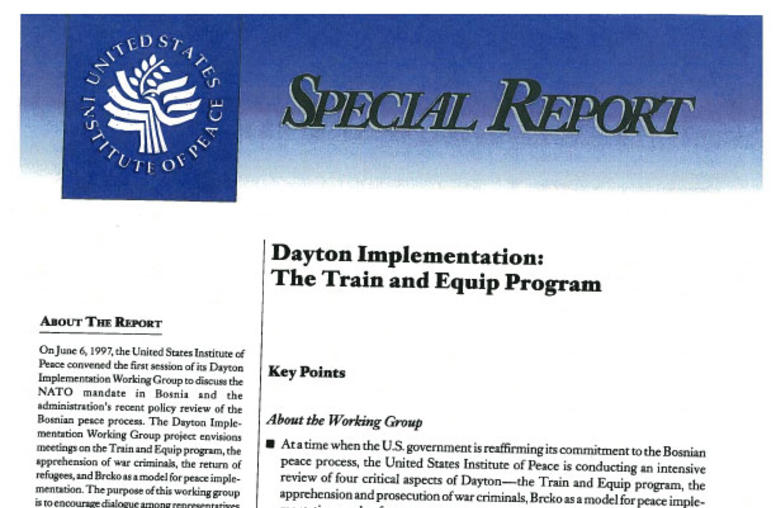
Dayton Implementation: The Train and Equip Program
The Dayton Implementation Working Group project envisions meetings on the Train and Equip program, the apprehension of war criminals, the return of refugees, and Brcko as a model for peace implementation. The purpose of this working group is to encourage dialogue among representatives from the administration and Capitol Hill and policy analysts on how best to implement these critical elements of the Dayton peace agreement
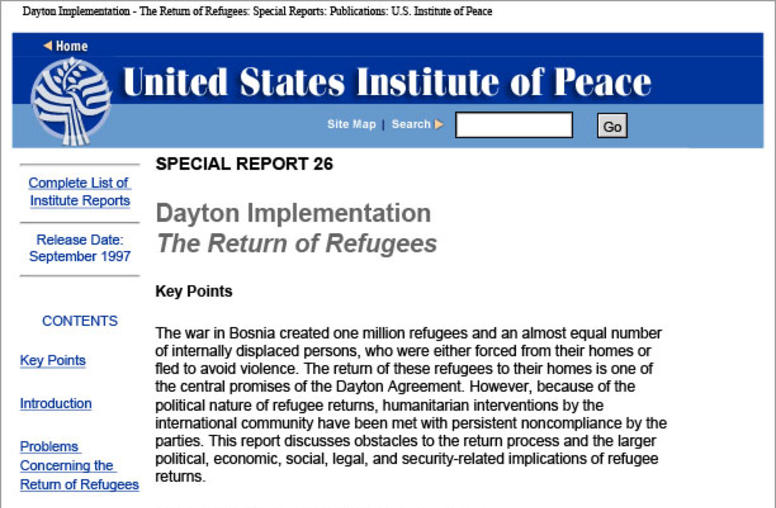
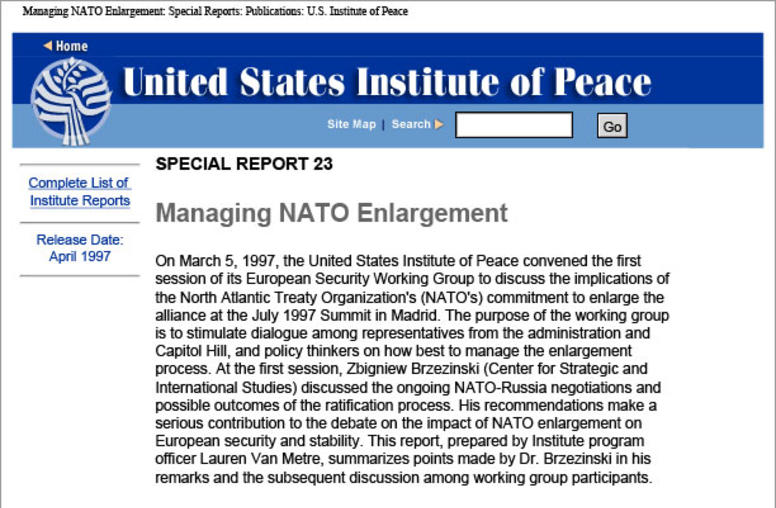
Managing NATO Enlargement
On March 5, 1997, the United States Institute of Peace convened the first session of its European Security Working Group to discuss the implications of the North Atlantic Treaty Organization's (NATO's) commitment to enlarge the alliance at the July 1997 Summit in Madrid.
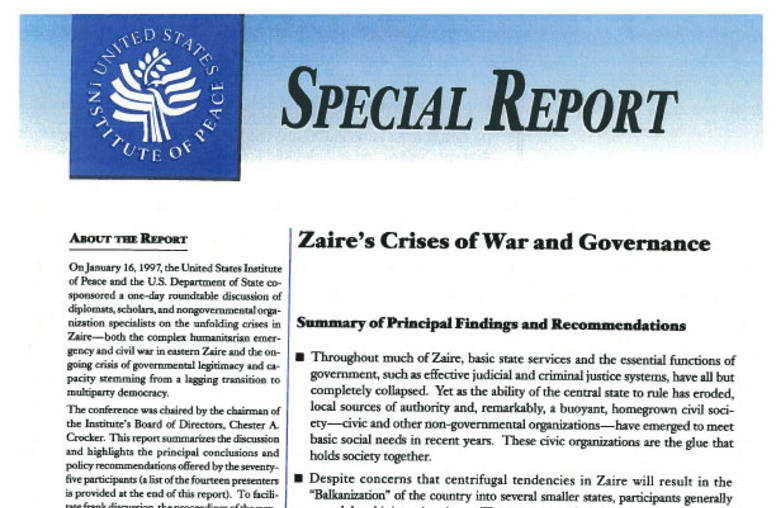
Zaire's Crises of War and Governance
On January 16, 1997, the United States Institute of Peace and the U.S. Department of State cosponsored a one-day roundtable discussion of diplomats, scholars, and nongovernmental organization specialists on the unfolding crises in Zaire-both the complex humanitarian emergency and civil war in eastern Zaire and the ongoing crisis of governmental legitimacy and capacity stemming from a lagging transition to multiparty democracy.
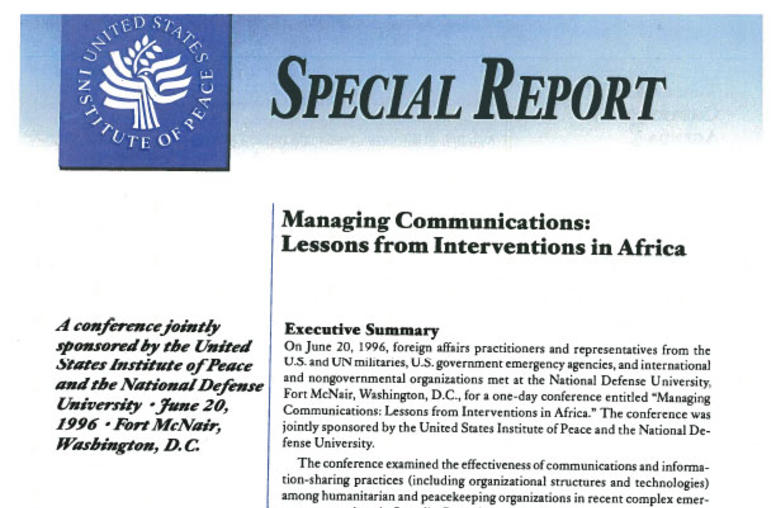
Managing Communications: Lessons from Interventions in Africa
"Managing Communications: Lessons from Interventions in Africa," the conference was jointly sponsored by the United States Institute of Peace and the National Defense University. It examined the effectiveness of communications and information-sharing practices (including organizational structures and technologies) among humanitarian and peacekeeping organizations in recent complex emergency operations in Somalia, Rwanda, and Liberia.
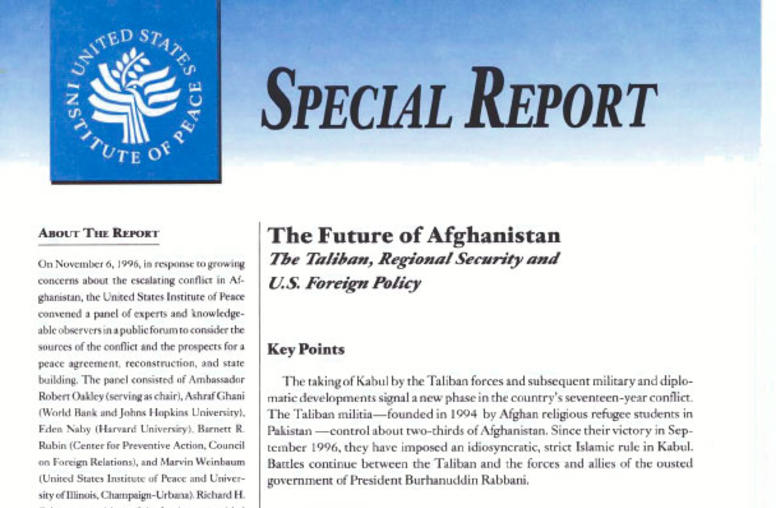
The Future of Afghanistan: The Taliban, Regional Security and U.S. Foreign Policy
In response to growing concerns about the escalating conflict in Afghanistan, the United States Institute of Peace convened a panel of experts and knowledgeable observers in a public forum to consider the sources of the conflict and the prospects for a peace agreement, reconstruction, and state building.
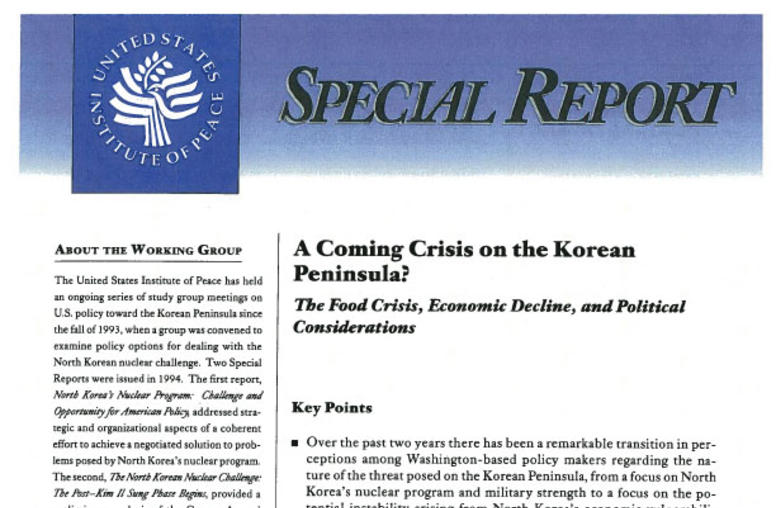
A Coming Crisis on the Korean Peninsula? The Food Crisis, Economic Decline, and Political Considerations
Over the past two years there has been a remarkable transition in perceptions among Washington-based policy makers regarding the nature of the threat posed on the Korean Peninsula, from a focus on North Korea's nuclear program and military strength to a focus on the potential instability arising from North Korea's economic vulnerabilities and political uncertainties. The major challenge for the United States is to pursue its strategic objectives in Northeast Asia by dealing with the prospect...